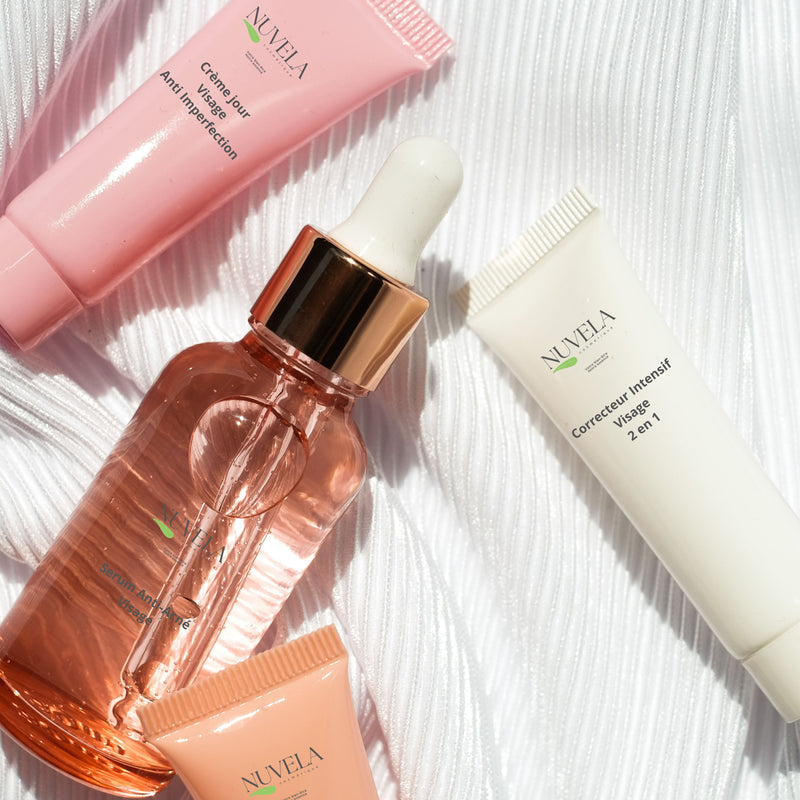
How to choose a sunscreen suitable for your skin type?
Share
The Importance of Sunscreen for All Skin Types

Sun protection is one of the essential pillars for maintaining healthy skin and preventing premature aging, pigment spots, and the risk of skin cancer. Yet, many underestimate its importance, especially those with dark skin . A common misconception is that dark skin, thanks to its high melanin content, is naturally protected from UV rays. While melanin offers partial protection against sunburn, it is not enough to block the harmful effects of UV rays in the long term.
Understanding the specific needs of your skin type
Each skin type requires a suitable sunscreen to maximize protection while providing comfort of use.
- Oily and acne-prone skin: Choose a light, non-comedogenic, and mattifying sunscreen. Gel or fluid textures are ideal for preventing shine.
- Dry skin: Choose a moisturizing sunscreen that contains nourishing agents like shea butter or hyaluronic acid.
- Sensitive skin: Look for fragrance-free sunscreens with a gentle formula containing mineral filters (zinc oxide or titanium dioxide) to prevent irritation.
- Dark skin: Dark skin often needs a broad-spectrum sunscreen to prevent dark spots and hyperpigmentation. Choose invisible or tinted formulas to avoid a white cast.
The criteria for choosing the right sunscreen
- Sun Protection Factor (SPF): SPF 30 is the minimum recommended for daily protection, but SPF 50 is preferable for prolonged exposure.
- UVA and UVB protection: Make sure the cream is labeled "broad spectrum" for complete protection.
- Composition: Avoid creams containing irritating or allergenic ingredients, especially for sensitive skin.
- Texture and finish: Choose a texture suited to your preferences (fluid, gel, cream) to ensure regular use.
Why do dark skin types also need to protect themselves?
The lack of awareness surrounding sun protection for dark skin is concerning. Many are unaware that UV rays can cause discoloration, post-inflammatory hyperpigmentation (especially after breakouts), and a weakened skin barrier. Additionally, prolonged exposure can lead to cell damage, increasing the risk of melanoma, although this risk is less discussed in dark-skinned communities.
Tips for effective application
- Apply your sunscreen every morning, even on cloudy days or in winter.
- Use a sufficient amount (about a teaspoon for the face) for optimal protection.
- Reapply every two hours in case of prolonged exposure.
- Incorporate it as the last step in your skincare routine before makeup.
In conclusion
Choosing the right sunscreen for your skin type is essential for effectively protecting your skin from the sun's harmful rays. Whether you have oily, dry, sensitive, or dark skin, there's a formula to suit your needs. For dark skin in particular, it's crucial to combat the lack of awareness surrounding this topic and adopt a daily sunscreen routine. Dark skin can remain radiant and even if it's well protected from UV damage.

